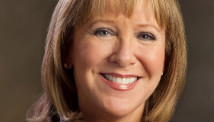SPRINGFIELD—
— A new Illinois General Assembly was inaugurated Wednesday, but lingering beyond the flowers, family and speeches was a host of unfinished business.
The old Legislature adjourned Tuesday without fixing the state's broken public pension system. Also left unresolved were the divisive issues of same-sex marriage, gun regulation and gambling expansion. It'll be a while before such problems are tackled — the part-time lawmakers are scheduled to go home for a few weeks before returning to the Capitol.
In the House, Speaker Michael Madigan remains in charge, as he has for all but two of the past 30 years. In the Senate, President John Cullerton starts his fifth year running the show. Both Chicago Democrats now wield veto-proof majorities after many voters throughout the state opted against the Republican alternative in November legislative races.
That new Democratic power brings added pressure to perform was not lost on Cullerton, who said his party's 40-19 advantage over the GOP is the largest in the nation and in state history.
"I know a lot of you are thinking, 'This is great. We've got 40 members. I don't have to take any tough votes,'" Cullerton told his Democrats in a decorated Senate chamber as family members were entertained by a rendition of the 1960s tune "Feeling Good."
"But if everybody thought like that, we wouldn't get anything done, would we?" he said.
Madigan, the longest-serving speaker in state history, told House members that key issues remain "terribly contentious, terribly divisive."
"We have to call upon our inner resolves to dedicate ourselves to the solution of these problems, working cooperatively with the other members of the House of Representatives and the Senate," said Madigan, who leads a 71-47 Democratic majority.
Still, Madigan gave a grave assessment of the poorly funded pensions, saying he would "emphasize the absolutely serious nature of the fiscal condition."
In the waning days of the legislative session that concluded Tuesday, Madigan made what he said was a good-faith effort to spur pension talks by lifting a demand that suburban and downstate teacher retirement costs be shifted from the state to local school districts. That's now back on the table for Madigan, who called it a "free lunch."
"Serious, serious problem, and if we're serious about solving the problem, that must be addressed," Madigan said.
The cost-shift provision is adamantly opposed by Republicans and some suburban Democrats who maintain that it will lead to local property tax increases.
After failing to come up with a pension solution before the clock ran out this week, Cullerton said that Senate Bill 1, legislation often symbolizing the top agenda item, would be a pension measure combining aspects of unresolved Senate-passed and House-sponsored plans.
"The finances of our pension system have to be addressed in a fair and constitutional manner. The issue has lingered for generations and threatens to doom future generations if something isn't done," Cullerton said.
"We are on the verge of our state budget being turned into a financial plan that funds pension benefits, not essential services. Our investments in higher, elementary and secondary education and human services are increasingly crowded out — some might say, squeezed — by our pension costs," Cullerton said in a nod to Democratic Gov. Pat Quinn, whose grass-roots pension reform movement used a cartoon mascot, Squeezy, the Pension Python.
Though Cullerton cast a vote for Senate Republican leader Christine Radogno of Lemont for Senate president, as she did for him in a symbolic display of bipartisanship, Radogno said "many people in Illinois really don't have a lot of confidence in us and hopefully we can turn that around."
"We have to come to grips with some of the very real problems that we have," she said. "The underlying pillar that will allow us to begin to address them is solving the pension problem."
House Republican leader Tom Cross of Oswego called for "incredibly bold ideas and incredibly bold solutions."
"We're facing challenges in the state that we probably haven't seen as a General Assembly since the Great Depression," Cross said.

